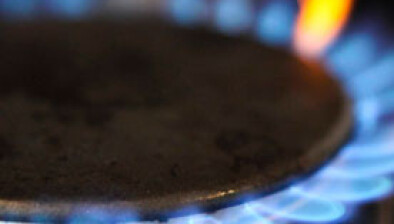Blog: Forecast for a warmer Scotland with the Fuel Poverty Bill?
 Shelter Scotland’s senior campaigns & policy officer, Lisa Glass, on the health implications of living in a cold home, and what more needs to be done.
Shelter Scotland’s senior campaigns & policy officer, Lisa Glass, on the health implications of living in a cold home, and what more needs to be done.
Thinking about cold homes and fuel poverty might be hard just now given the elusive Scottish summer will soon be upon us, but today 649,000 households in Scotland are living in fuel poverty. Many are unable to afford to cook a hot meal, or are spending so much on their gas and electricity they have to cut back on food for the week. And when the sun isn’t helping out, thousands are struggling to heat their homes.
In the next few weeks, the Fuel Poverty (Target, Definition and Strategy) (Scotland) Bill will be introduced to Parliament – we need to show that there is broad support behind initiatives to tackle the very real human consequences of fuel poverty.
Why is action on fuel poverty so critical?
Fuel poverty, just like other aspects of bad housing, isn’t a standalone issue. Not only can it cause debt, a threat to housing security, stress over bills and discomfort from living in a freezing cold home, it’s impact stretches to health: whether someone responds by reducing vital fuel use or spending more income on fuel meaning they have less to pay for fresh fruit, a warm winter coat, travel to medical and social appointments – all things that can help you stay healthy.
Most research focuses on the health impacts of living in a cold home – that they can result in cardiovascular, respiratory and mental health problems, and make arthritis and rheumatism worse. And health impacts can be extreme, with cold homes contributing to more deaths in winter.
But fuel poverty is not just about warmth – it is about other fuel use too. All too often at Shelter Scotland we hear of people being in the awful situation of having to make the ‘heat or eat’ decision: having no money for their gas or electricity meter and still having to buy food for the rest of the week. What impact does this have on diet, and health and health inequalities?
Fuel poverty can also cause anxiety over how you’re going to pay for high bills, and isolation as you might be embarrassed to invite visitors to your home or have less money left over to go out and socialise. The Scottish Government recently consulted on a new strategy to tackle obesity and another to tackle social isolation and loneliness – fuel poverty needs to be a part of these considerations.
So what can we do?
The Scottish Government also consulted on a new strategy to tackle fuel poverty, parts of which they intend to legislate for through the Fuel Poverty (Scotland) Bill, due to be introduced to Parliament in June 2018. We believe the Bill is a once in a generation opportunity to transform Scotland’s homes and put an end to fuel poverty.
However, we, and many other organisations who support the Existing Homes Alliance Scotland, are worried that the current scope of the bill is too narrow, focusing on fuel poverty but not legislating for any of its drivers, and the targets that might be included are not ambitious enough. To make sure this legislation lives up to its potential we need to take advantage of current action and cross party support, to create a Bill with concrete and ambitious targets to eradicate fuel poverty and poor energy performance.
Only then will we be able to say that the Bill will ensure that everyone can benefit from affordable heat and energy use in every part of Scotland regardless of tenure, type of house and income – with fuel poverty tangibly reduced, health inequalities meaningfully tackled, and a step closer to ensuring there is a safe, secure and affordable home for everyone.
This article was originally published on the Shelter Scotland website.








